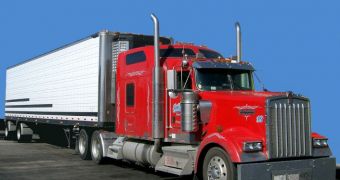Around the world, authorities are beginning to take steps towards reducing the amount of carbon dioxide vehicles circulating on public roads put out, but their efforts are being hampered by large vehicles.
The conclusion belongs to a new study, which shows that CO2 emissions increase with car and engine size, AlphaGalileo reports.
Over the past few years, the general trend has been to produce automobiles and trucks that are increasingly larger than previous generations of the same make and model.
According to expert Frances Sprei, who is based at the Chalmers University of Technology, in Gothenburg, Sweden, it would appear that this increase in size nullifies the effect that reduction measures have overall.
At this point, car manufacturers abide by two major trends – either create larger vehicles with very powerful engines, or produce smaller cars, that may or may not be fueled by batteries or ethanol.
Those cars that are becoming larger are also becoming capable of accelerating very, very fast, which means that the engine has to work extra hard. As this happens, more CO2 is emitted.
In the new investigation, it was also revealed that people in Sweden also tend to buy cars that are both larger, and consume more fuel, than the European average. This difference has been on the rise for at least a few years.
However, technical improvements in the cars and the technology underlying them have not resulted in lower fuel consumption overall, or in reduced amounts of pollution.
The data also shows that, had cars not grew larger and more capable between 1985 and 2007, than the population would have consumed approximately 47 percent less fuel.
Over the same time frame, fuel reduction levels only reached 18 percent. “Measures that may lower emissions involve using policy instruments that reduce fuel consumption per se, regardless of fuel type,” Frances Sprei said while defending her dissertation.
The work, entitled “Energy Efficiency Versus Gains in Consumer Amenities,” was presented at the Chalmers University of Technology on September 6.
Additional research showed that people, although more environmentally conscious, did not purchase larger numbers of small cars, but rather preferred to orient themselves on diesel- and ethanol-powered vehicles.
Buying smaller cars with less horsepower still remains to best way to reduce individual carbon footprints, analysts say.

 14 DAY TRIAL //
14 DAY TRIAL //